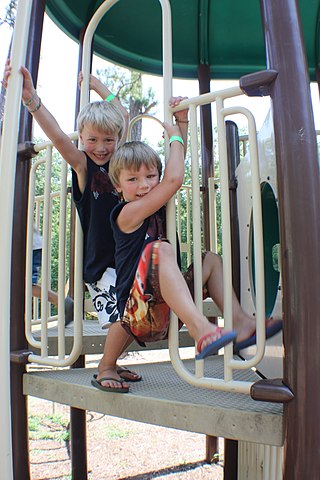Gross motor skills involve the use of the large muscles in the body for activities such as crawling, walking, running, jumping, and playing sports. The development of gross motor skills is crucial in children for various reasons, impacting their physical health, coordination, and overall well-being. Here are some key aspects highlighting the importance of developing gross motor skills in children:
Physical Health:
- Strength and Endurance: Gross motor skills development contributes to the strengthening of major muscle groups, enhancing overall physical strength and endurance in children.
- Cardiovascular Health: Activities that involve gross motor skills, such as running and jumping, promote cardiovascular health and fitness.

Coordination and Balance:
- Spatial Awareness: Engaging in activities that require gross motor skills helps children develop spatial awareness, an understanding of their body’s position in space.
- Balance and Stability: Gross motor activities, including balancing on one foot or navigating obstacle courses, improve balance and stability, reducing the risk of falls and injuries.
Cognitive Development:
- Brain Development: Gross motor activities stimulate the development of the brain and nervous system. The coordination of large muscle groups enhances cognitive functions and supports overall brain health.
- Attention and Concentration: Participation in physical activities has been linked to improved attention span and concentration in academic tasks.
Social and Emotional Well-Being:
- Team Building: Gross motor activities often involve teamwork and cooperation, fostering social skills and collaboration among children.
- Emotional Regulation: Physical activity helps children release pent-up energy and stress, promoting emotional well-being and providing an outlet for self-expression.
Academic Readiness:
- Fine Motor Skill Development: Gross motor skills lay the foundation for the development of fine motor skills. Activities that involve large muscle groups contribute to the overall coordination necessary for tasks such as writing and using tools.
- Readiness for Learning: Children with well-developed gross motor skills are often more ready for the cognitive challenges of school, as physical activity positively influences overall readiness and attentiveness in the classroom.
Independence and Daily Living Skills:
- Self-Care: Gross motor skills are essential for performing daily living activities, such as dressing, eating, and maintaining personal hygiene. These skills contribute to a child’s independence and ability to take care of themselves.
Preparation for Sports and Recreational Activities:
- Sports Proficiency: Gross motor skills form the foundation for the development of specific sports-related skills. Proficiency in running, jumping, and throwing lays the groundwork for participation in various sports and recreational activities.
Healthy Lifestyle Habits:
- Physical Activity Habits: Developing gross motor skills in childhood establishes a foundation for a physically active lifestyle. Children who enjoy physical activities are more likely to carry these habits into adulthood, promoting lifelong health.
In summary, the development of gross motor skills in children is a multifaceted process that impacts physical health, cognitive development, social skills, and emotional well-being. Providing opportunities for children to engage in a variety of gross motor activities is essential for their overall growth and readiness for various aspects of life.











